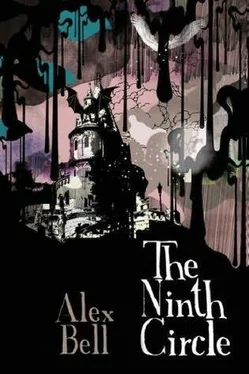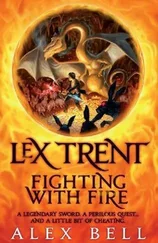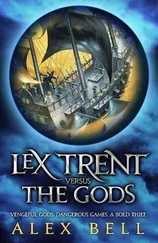Alex Bell - The Ninth circle
Здесь есть возможность читать онлайн «Alex Bell - The Ninth circle» весь текст электронной книги совершенно бесплатно (целиком полную версию без сокращений). В некоторых случаях можно слушать аудио, скачать через торрент в формате fb2 и присутствует краткое содержание. Жанр: Ужасы и Мистика, на английском языке. Описание произведения, (предисловие) а так же отзывы посетителей доступны на портале библиотеки ЛибКат.
- Название:The Ninth circle
- Автор:
- Жанр:
- Год:неизвестен
- ISBN:нет данных
- Рейтинг книги:5 / 5. Голосов: 1
-
Избранное:Добавить в избранное
- Отзывы:
-
Ваша оценка:
- 100
- 1
- 2
- 3
- 4
- 5
The Ninth circle: краткое содержание, описание и аннотация
Предлагаем к чтению аннотацию, описание, краткое содержание или предисловие (зависит от того, что написал сам автор книги «The Ninth circle»). Если вы не нашли необходимую информацию о книге — напишите в комментариях, мы постараемся отыскать её.
The Ninth circle — читать онлайн бесплатно полную книгу (весь текст) целиком
Ниже представлен текст книги, разбитый по страницам. Система сохранения места последней прочитанной страницы, позволяет с удобством читать онлайн бесплатно книгу «The Ninth circle», без необходимости каждый раз заново искать на чём Вы остановились. Поставьте закладку, и сможете в любой момент перейти на страницу, на которой закончили чтение.
Интервал:
Закладка:
I took her photograph out of my pocket. The photo that had been stitched into the lining of the antique Italian volume of Hell and its devils with the reference to the Holocaust Memorial on its back. And now this Jewish scientist had turned up, stuffed into a box, beneath the Weeping Willow memorial created in memory of all those who had gone before. Had the reference to a weeping willow been a clue? A premonition? A warning? Who was it who was playing these games with me? Who tormented me in such a fashion? Sending me the smallest snippets of information with maddeningly cryptic quotations that could not be unravelled until it was too late.
I pulled out the second photograph — the one that had been hidden in the case of wine from France; the one that showed Stephomi and me facing each other across the hotel room, the vast, stunning cityscape of Paris spread out through the window behind us. And the quote from Robert Kennedy on the back: ‘ Forgive your enemies, but do not forget their names. ’… Do not forget their names… The implication was clear — that Zadkiel Stephomi was an enemy and not to be trusted. That he must be kept at arm’s length and closely watched. But whatever Stephomi was to me, he had been more forthcoming and open than this cursed letter-sender, and in those moments I felt a powerful, unreasoning hatred against that person. That unknown person, out there somewhere, deliberately taunting me, pushing me to the edge of madness itself. God, how I hated them!
And, whoever they were, they were now here in Budapest. They had pushed the last note under the door with their own hands rather than sending it disguised in the mail. They knew where I lived. They knew that I could read and understand Latin. I took this note out too and lay it on the table beside the photos and the newspaper article to re-read it:
The gates of Hell are open night and day;
Smooth the descent and easy is the way.
And then, added beneath:
The Ninth Circle will not hide you much longer.
Yes. Someone was surely trying to drive me insane. The Weeping Willow reference on the back of Anna Sovanak’s picture strongly suggested that this was the same person who had deposited the Jewish woman’s body beneath the Holocaust Memorial. Which meant that I did indeed have a most dangerous enemy: a ruthless and twisted killer; a clever lunatic. But I wouldn’t let him beat me. I’d set a trap for him — catch him like the rat he was.
I went into Budapest today and purchased a very expensive, top of the range video camera, so tiny as to be hardly noticeable to the casual glance, which I fixed over my doorway. If anybody puts anything else under my door, I will know about it. I will see, once and for all, who is behind these dreadful games.
I have always been a fervent and devout Christian. I know this because of the worn out, heavily annotated Bible by my bed, but I can also feel my faith burning inside me. I accept God in my soul. I know that the Bible speaks the truth and I need no miracles to persuade me of this. I have always known that angels and demons are real. But I didn’t realise that they were so close to us before.
The knowledge alarmed me, for Stephomi had said that angels and demons didn’t like us — we few who could see them — but nonetheless, when there was something that they wanted, they might come and ask things of us. I knew that I needed to be protected against such an event. If an angel asked something of me, I knew I would gladly comply; but I vowed that I would not follow in Stephomi’s footsteps and acquiesce to any demonic request that might be put to me — even if the decision cost me my life. I meant it, too. A person has to have something of heroism in them to be prepared to die for what they think is right, don’t they? I can be proud of my convictions. It’s more than Stephomi is willing to do. Not that I can really blame him. I realise that there can’t be many of us who have such an inner selflessness.
In order to prepare myself, I reluctantly took out my many books on demonology once more and read up on the fallen angels, from the Watchers to Lucifer himself and his seven Princes of Darkness. I read of Beezlebub, so called ‘Lord of the Flies’ because of the insect swarms that lingered around his bloodstained altar. I read of Belphegor — the champion of lust — and Moloch, who demanded the sacrificing of children in his honour. And so the list went on: Mephistopheles, Belial, Samael, Asmodeus, Mastema, Nisroch… each demon with their own despicable tale of sin and wickedness. I learned as much about each of them as I could so that I might recognise them if they came to me.
I studied the repulsive paintings in the antique Italian book, noting with distaste the lunatic expressions on the faces of these demons. But there was one painting in particular that disturbed me more than all the others. It was a picture of Mephistopheles by an unknown artist. The book explained that the painting had been discovered in Italy in the 1500s and the precise age of the picture was difficult to estimate. What so unnerved me about it was the distinct lack of any madness in the demon’s intelligent gaze. His thin, twisted form was undoubtedly that of a demon, but something of the angel hung about him still. The large, bedraggled wings that were curved round him like a bat had not quite lost all their white feathers. He was perched on the edge of a mountain, his feet gripping the boulder like claws as he stared down hungrily at the world spread beneath him.
It was thought that Lucifer had bitterly missed God and longed horribly for Heaven for many centuries after falling from grace. But not Mephistopheles, who had promptly followed Satan from the Heavenly realms, revelling in his newfound freedom without even the slightest twinge of doubt or regret or uncertainty.
I thought back to the way Mephisto had so cleverly turned Faust’s thirst for knowledge and self-improvement against him, and felt disgusted by the demon and his methods — to twist something good and admirable in such a way that, in the end, it completely undoes the man who once entertained notions of nobility and integrity.
I closed the book then and moved on to another, finding of all the demons it was Mephistopheles I feared meeting the most. With the other demons, even Lucifer himself, I felt that as long as I was firm in my adherence to Christianity and Godly values, they would not be able to touch me. But with Mephistopheles, it was those Godly values themselves that turned into weapons in his masterly hands to be used against the helpless men who became so inextricably entwined in his grasp.
The other thing that disturbed me was the idea that some demons are the ‘dark twins’ of angels. Two brothers on opposite sides of the bloody War. I dislike anything that connects angels with such vile creatures. Of all the angels, I like Michael the best. Head angel after Lucifer’s fall, Michael is often portrayed with sword and armour and is said to have led the heavenly army against the rebel angels and is destined to do so again in the battle that will take place at the end of time. It’s also said that Michael fought Satan for Moses’ body after his death. So I suppose Stephomi was right — angels do fight, after all. With such an infestation of demons, what other choice do they have?
The Cherubim, second highest choir of angels, were said to have been formed from the tears that Michael shed over human sins. It would seem indeed that he is a powerful force to be reckoned with, and his existence comforts me in the wake of hours spent reading of powerful, reckless devils.
I am glad that I started this journal. It is a focus; it grounds me in some sense of reality, of stability. It is an anchor for my soul, not allowing me to become too detached. I sometimes worry that all my research into angels and their fallen brothers serves only to further distance me from those around me; to further sever the already tenuous link I have to this world and bring me closer to theirs.
Читать дальшеИнтервал:
Закладка:
Похожие книги на «The Ninth circle»
Представляем Вашему вниманию похожие книги на «The Ninth circle» списком для выбора. Мы отобрали схожую по названию и смыслу литературу в надежде предоставить читателям больше вариантов отыскать новые, интересные, ещё непрочитанные произведения.
Обсуждение, отзывы о книге «The Ninth circle» и просто собственные мнения читателей. Оставьте ваши комментарии, напишите, что Вы думаете о произведении, его смысле или главных героях. Укажите что конкретно понравилось, а что нет, и почему Вы так считаете.












